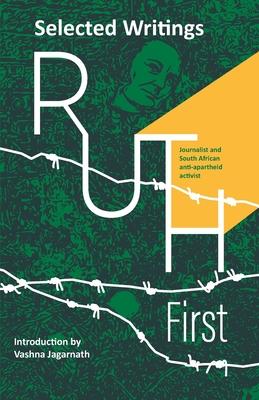Ruth First, born in 1925, held multiple roles during the struggles of her time as a communist militant, journalist, researcher and leading intellectual in South Africa. Until her assassination in 1982, she was a committed anti-apartheid activist and was one of the many defendants of the Treason Trial and imprisoned without charge in solitary confinement for 117 days in 1963. Ruth First on a range of topics including the landmark 1956 Women's March, the workings of the apartheid state, and the history of anti-apartheid armed struggle against this state, introduced by an essay on First's life and legacy, written by Vashna Jagarnath, a labour activist who works in the office of the general secretary of the National Union of Metal workers of South Africa (NUMSA).

Ruth First, born in 1925, held multiple roles during the struggles of her time as a communist militant, journalist, researcher and leading intellectual in South Africa. Until her assassination in 1982, she was a committed anti-apartheid activist and was one of the many defendants of the Treason Trial and imprisoned without charge in solitary confinement for 117 days in 1963. Ruth First on a range of topics including the landmark 1956 Women's March, the workings of the apartheid state, and the history of anti-apartheid armed struggle against this state, introduced by an essay on First's life and legacy, written by Vashna Jagarnath, a labour activist who works in the office of the general secretary of the National Union of Metal workers of South Africa (NUMSA).